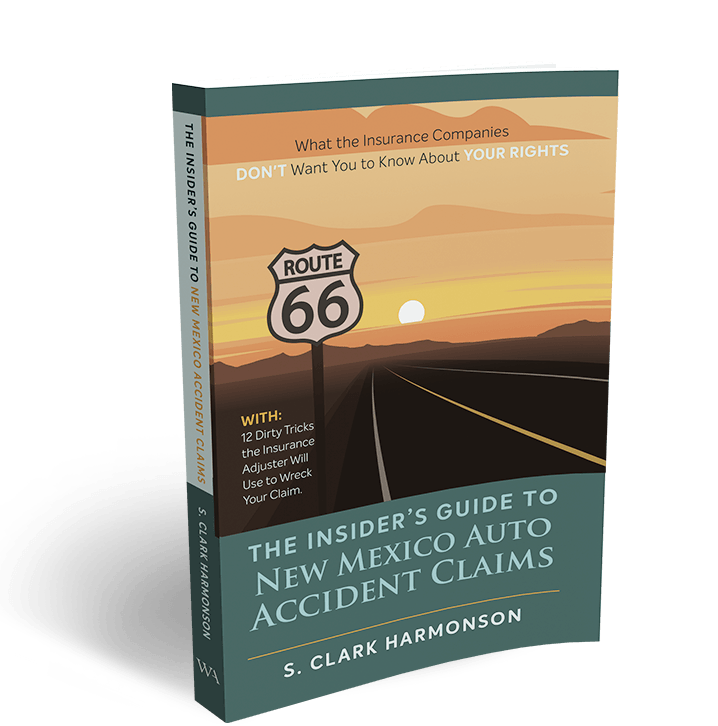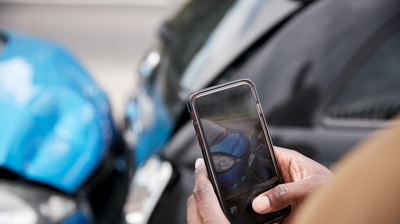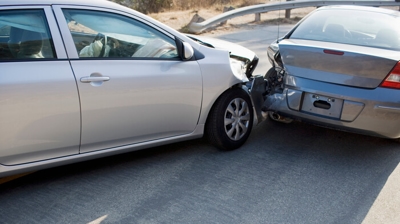
Las Cruces Rideshare Accident Attorneys
Injured in an Uber & Lyft Accident in Las Cruces, NM?
In the aftermath of a Uber or Lyft accident in Las Cruces, having a skilled legal advocate on your side is not just beneficial; it is crucial for protecting your rights and building a strong case for compensation.
At Harmonson Law Firm, we can be that dedicated advocate for you. Our Las Cruces rideshare accident lawyers can thoroughly investigate your accident, meticulously determining fault by analyzing all available evidence, including police reports, witness statements, and any relevant surveillance footage.
We can handle all communications and negotiations with insurance companies and other involved parties so that you don’t have to navigate the complexities of the legal process alone. Our commitment extends to filing a lawsuit on your behalf if necessary, and we can represent you in court with the utmost professionalism and determination.
Here's why you should hire our firm:
- We offer contingency fees, so you don’t pay our fee unless we recover compensation for you.
- We have recovered over $10 million for our clients.
- We prepare every case as if it’s going to trial.
- We are available 24/7 to assist our clients.
- We offer virtual consultations for your convenience.
- We provide free consultations to discuss your case.
- We speak Spanish.
Call to schedule a free consultation with a Las Cruces rideshare accident attorney today.
New Mexico Rideshare Laws
In New Mexico, rideshare services like Uber and Lyft are regulated under the Transportation Network Company Services Act. This legislation outlines the responsibilities and requirements for both transportation network companies (TNCs) and their drivers to ensure safety and accountability.
Key Requirements for TNCs
- Permit and Fees: TNCs must obtain an annual permit from the New Mexico Public Regulation Commission (PRC) and pay a $10,000 fee.
- Insurance Coverage: When a driver is logged into the app but not on a trip, they must have $50,000 for bodily injury per person, $100,000 per incident, and $25,000 for property damage in coverage. During a trip, they must have $1 million in primary liability coverage. Uninsured and underinsured motorist coverage is also required.
- Driver Screening: TNCs must conduct criminal background checks and driving history reviews before allowing individuals to drive.
- Zero-Tolerance Policy: TNCs are required to enforce a zero-tolerance policy for drug and alcohol use, including procedures for handling complaints and suspending drivers.
- Fare Transparency: TNCs must disclose fare calculation methods and provide passengers with estimated fares before the ride begins.
- Electronic Receipts: After each ride, TNCs must send passengers an electronic receipt detailing the trip's origin, destination, duration, distance, and fare breakdown.
- Data Privacy: TNCs are prohibited from disclosing riders' personally identifiable information without consent, unless required by law.
Driver Requirements
- Age and Licensing: Drivers must be at least 21 years old and hold a valid driver's license.
- Vehicle Standards: Vehicles must have at least four doors, accommodate no more than eight passengers (including the driver), and pass annual safety inspections
- Driving Limits: Drivers are restricted to providing prearranged rides for no more than 12 hours within any 24-hour period.
- Prohibited Activities: Drivers cannot accept street hails or cash payments; all transactions must be conducted electronically through the app.
Types of Rideshare Accidents
Rideshare accidents, while sharing similarities with typical car accidents, often present unique challenges due to the involvement of a rideshare company and its insurance policies.
Here are some common types of rideshare accidents:
- Rear-end collisions: A common type of accident where a rideshare vehicle is hit from behind, often due to distracted driving or tailgating.
- Intersection accidents: Occur when a rideshare vehicle collides with another vehicle, pedestrian, or cyclist at an intersection, frequently due to failure to yield or running a red light.
- Head-on collisions: These severe accidents involve a rideshare vehicle colliding head-on with another vehicle, often resulting in significant injuries.
- T-bone accidents: Also known as side-impact collisions, these accidents happen when a rideshare vehicle is struck on its side by another vehicle, typically at intersections.
- Rollover accidents: These accidents involve a rideshare vehicle rolling over, often due to high speeds, sharp turns, or uneven road surfaces.
- Passenger-related accidents: These accidents involve injuries to passengers inside the rideshare vehicle, which may be caused by sudden braking, sharp turns, or collisions.
It’s important to remember that each rideshare accident is unique, and the specific circumstances will determine the appropriate legal approach.
Potential Liable Parties in a Rideshare Accident
In New Mexico, determining who is liable for an Uber or Lyft accident depends on the driver's status at the time of the crash. These rideshare companies have tiered insurance coverage that changes depending on whether the driver is logged into the app, waiting for a ride, or actively transporting a passenger. Here's how liability typically breaks down:
The Driver is Logged Off the App
If the Uber or Lyft driver is not logged into the app, they are considered to be using their vehicle for personal reasons.
In this case:
- Rideshare company's insurance does not apply.
- The driver’s personal auto insurance is responsible for covering damages and injuries.
- If the driver was at fault, injured parties would typically file a claim against the driver’s personal policy.


From Injury to Recovery FAQ's to Help Start Your Journey
-
Are rideshare accidents more common during events like the Whole Enchilada Fiesta in Las Cruces?With increased traffic and congestion during popular events like the Whole Enchilada Fiesta, the likelihood of rideshare accidents can rise. Drivers might be rushing to pick up or drop off passengers, leading to distracted driving or traffic violations. If you’re attending a large event in Las Cruces, it’s wise to be extra cautious, whether you’re a passenger, driver, or pedestrian.
-
How does New Mexico’s uninsured/underinsured motorist coverage apply to rideshare accidents in Las Cruces?New Mexico law requires drivers to carry uninsured/underinsured motorist coverage. This coverage can be crucial in rideshare accidents, especially if the at-fault driver has insufficient insurance or no insurance at all. Your own uninsured/underinsured motorist coverage can help cover your medical expenses and other damages.
-
What if the rideshare driver was off-app or on a personal trip during the accident in Las Cruces?If the rideshare driver was not actively engaged in a ride for the rideshare company at the time of the accident, the company’s insurance coverage might not apply. This scenario can complicate matters, and it becomes crucial to investigate the driver’s personal insurance coverage and any other potential sources of compensation.
Stay Informed News, Tips, & Legal Insights
Want all the latest news or updates? Browse through our blog to read our most recent posts and featured articles.


